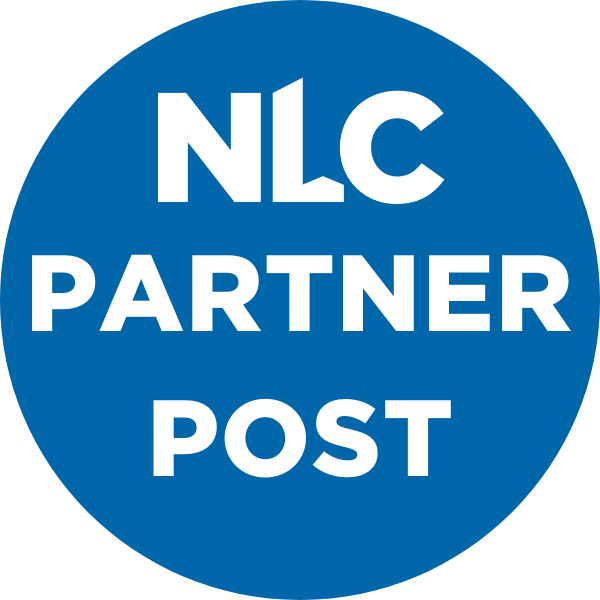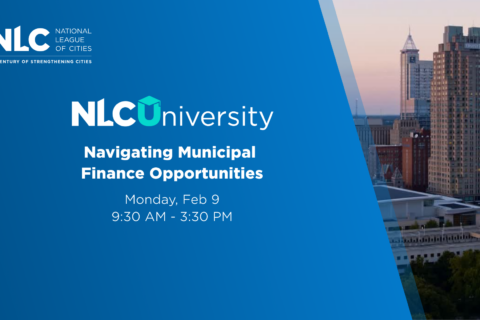Authored by Annmarie Lehner, K-12 Business Development and Strategy Leader at Amazon Web Services (AWS)
The landscape of municipal education — which encompasses local public schools, community learning programs and city-led educational initiatives — is undergoing a remarkable transformation, powered by artificial intelligence and cloud computing. As cities and towns across the nation grapple with educational inequality, these technologies are emerging as powerful tools for creating more inclusive and personalized learning environments.
Revolutionizing Education
In classrooms and community centers across America, AI is quietly revolutionizing how students learn. Picture a middle school student struggling with algebra; AI-powered platforms can now adapt in real-time to their learning pace, providing personalized support and breaking down complex concepts into manageable pieces. For English language learners, these same systems offer instantaneous translation and cultural context, ensuring they can participate fully in their education journey. Students with disabilities can find new pathways to learning through AI-enabled accessibility features, while predictive analytics help educators identify and support at-risk students before they fall behind.
The cloud has become the foundation upon which this educational revolution is being built. Gone are the days when a municipality’s wealth determined the quality of educational resources available to its students. Today, cloud-based solutions can offer a level playing field, providing high-quality educational content to students regardless of their zip code. From the smallest rural town to the largest urban center, students can access the same cutting-edge resources through any internet-connected device.
Beyond the Classroom
The impact extends far beyond traditional K12 education. Municipal libraries have transformed into digital learning hubs, offering community members access to professional development courses and digital literacy programs. Adult learners can now access vocational training and certification programs that might have been out of reach just a few years ago. Through AWS Educate, these learners can also access free, self-paced resources to build cloud computing skills at any stage of their journey, further expanding opportunities for professional growth.
Real-world implementation of these technologies are already showing promising results. Take the K-12 Presidential AI Challenge, for instance: a groundbreaking national initiative to harness artificial intelligence for public good. Through platforms like PartyRock, an Amazon Bedrock Playground that is a fast and fun platform for building AI-generated apps, students will work with educators to build AI applications that address local challenges, while competing in the Presidential AI Challenge for cash awards and cloud credits that will allow their schools to bring these innovations to life.
In Texas, the Region 13 Education Service Center is innovating on behalf of their students and educators with their flagship project, Pulse. This AI-powered platform helps teachers save time by delivering data-informed recommendations aligned with the curriculum. Designed with strict compliance standards, Pulse integrates securely with their student information and learning management systems to personalize learning, support assessments and empower educators with actionable insights — all while keeping privacy and security at the forefront.
Similarly, Peninsula School District in Washington state implemented Amplify GenAI, an open-source platform, to build tailored AI applications that boost staff efficiency and support instructional innovation. From lesson planning to a custom “Labor Manager” assistant that references collective bargaining agreements, the district is using AI to streamline operations and empower educators.
Educational programs are increasingly available to individual learners as well. For instance, to further support a vision of technological equity, AWS offers educational programs to designed to reach students of all backgrounds and provide clear pathways to technology careers. Through initiatives like the Amazon Girls’ Tech Series and the Amazon Future Engineer Program’s end-to-end support system — from teacher development to student internships — traditionally underrepresented groups gain both the exposure and ongoing support needed to succeed in technology fields.
What’s Next
Looking ahead, the future of municipal education appears increasingly bright, though not without its challenges. Success requires a delicate balance of sustainable funding, ongoing professional development, and strong community engagement. The key lies in viewing AI and cloud technologies not as replacements for human interaction, but as tools to enhance and expand educational opportunities.
As we witness this educational evolution, it’s clear that the most successful educational institutions will be those that embrace these technologies while maintaining focus on their core mission: preparing all students for success in an increasingly digital world. Through strategic partnerships, thoughtful implementation and a commitment to equity, AI and cloud computing are helping to create educational environments where every student can thrive.
The digital divide that once seemed insurmountable is gradually being bridged, one student, one classroom and one community at a time. As these technologies continue to evolve, they promise to make high-quality education more accessible, adaptable and equitable than ever before. The future of municipal education isn’t just about implementing new technologies — it’s about using these tools to create learning environments that truly serve all members of our communities.
Annmarie Lehner is the K-12 Business Development and Strategy Leader at AWS where she leads a team who are engaging primary education institutions as they consider cloud platforms to drive down costs and innovate their Districts. Prior to joining AWS, Annmarie worked in technology and leadership roles in K12 Public Education for more than 30 years, serving for more than 10 years as the Chief Information Technology Officer (CITO) and Chief of Staff to the Superintendent of Schools at the Rochester City School District (RCSD) in NY.
Visit the NLC Strategic Partnerships page to learn more about the organizations like AWS dedicated to making NLC the premier resource for local governments.










